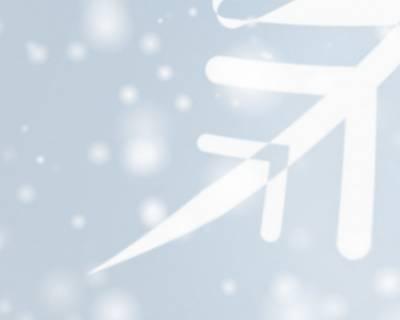| doctor | Zhang Xi-chun |
|---|
| alias | styleShou-fu |
|---|
Zhang Xi-chun, also known as Shoufu, was originally from Zhucheng, Shandong Province. He moved to Bianwuli, Yanshan, Zhili (now Hebei Province) in the early Ming Dynasty, and became a native of Yanshan. His family was well-off, and he had been a Confucian scholar for generations since his great-grandfather. His father, Tongyuan (named Danting), was born in Tongyuan, and he devoted his whole life to teaching and learning. His family taught his children and grandchildren that they should educate themselves and practice medicine to benefit the world and nourish themselves. Xichun was gifted and enlightened. He followed his family's instructions and read prescriptions in his spare time. However, he failed to pass the exam during his later years in the autumn, so he became famous as a doctor.
In 1912, Huang Huaxuan, commander of the Texas garrison, hired Zhang Xi-chun as a military doctor. From then on, he began his professional medical career. During his tenure as a military doctor, he accompanied the army to Wuhan, and later moved to Daming, Guangping, Handan, Xingtai, Dezhou and other places. His medical skills were highly valued by some military and political dignitaries. His works gradually became known and copied by more and more people. After reading them, Yuan Shuzi (alias Linpu) of Fengtian (now Shenyang) advised him to apply for copyright to the Ministry of the Interior. In 1918, Su Mingyang and others from the Fengtian Tiandi New Society registered it on their behalf, and Gao Zhenduo of the Fengtian Medical Research Society corrected it. The first issue was printed for the first time with funding from the society. In the same year, Fengtian established a Chinese medicine hospital, "Lida Hospital", and appointed Zhang Xi-chun as its director.
Yixue Zhongzhong Canxilu sold out quickly after its publication. It was reprinted in the spring of the following year and the second issue was printed at the same time. Zhang Xi-chun was just beginning to develop his ambitions when the Zhili-Fengtian War broke out. He had no choice but to return to the customs in 1923 and opened a business in Cangxian County.
In 1924, Zhang Xi-chun printed the third and fourth issues of Yixue Zhongzhong Canxilu at his own expense. The medical community competed for the purchase, and a total of four editions were printed. The author's reputation grew. In 1926, Hu Zhenyi, the former Qing Dao Yin, invited him to Tianjin to be a tutor (teacher) in a special museum. Zhang Xi-chun took his family to Tianjin and started practicing medicine while teaching apprentices. In the spring of 1927, it officially opened for medical practice, and the clinic was named "Zhongxi Huitong Medical Society".
In the last five years from 1928 to 1933, Zhang Xi-chun's academic and career reached their peak. He first printed the fifth issue of Yixue Zhongzhong Canxilu to provide medical treatment and spread academic knowledge at the same time. The following year, the first three issues of Yixue Zhongzhong Canxilu were reprinted and reprinted together, with a total of 5 printings to meet the demand. In 1931, the sixth issue of the book was published, counting two printings. In order to quickly cultivate more high-level talents integrating traditional Chinese and Western medicine, he established a four-year correspondence college in the spring of 1933, regardless of his 73-year-old age.
Zhang Xi-chun became famous relatively late, but he has a lot of talents in the world. His disciples include Zhou Yuxi of Longchang, Chen Aitang and Li Weinong of Rugao, Gao Yanqiao of Tongxian, Wang Gongnu of Qiyang, Zhang Fangyu of Shenxian, Sun Yuquan and Li Baohe of Tianjin, and Zhong Xiaoqiu of Liaoning, etc. They are all famous doctors. Those who practice their knowledge privately are invincible. At that time, famous domestic Chinese medicine practitioners such as Ran Xuefeng in Hankou, Zhang Shan-lei in Jiading, Liu Miantang in Fengtian, Yang Ruhou in Taixing, Liu Weichu in Xiangshan, Zhang Shengfu in Cixi, and He Lian-chen in Shaoxing often discussed academic matters with Zhang Xi-chun, and they were well known to each other. A dear friend. Journal of Traditional Chinese Medicine, which has great influence in modern times, often hires him as a special contributor.
In addition to medical works, Zhang Xi-chun also wrote "The Source of Algebra" and "Illustrated Commentary on the Book of Changes" (unpublished), and another poem "Zhongjuxuan Shicao" which was appended to Yixue Zhongzhong Canxilu Issue 6.
Zhang Xi-chun has three sons and one daughter. The eldest son Yinchao followed his father's footsteps and served as a military medical officer at the Gyeonggi Garrison Headquarters. He died in 1939. The next grandson, Mingxun, inherited his ancestral legacy and practiced medicine in his native place. In 1954, he dedicated the copyright and manuscripts of Yixue Zhongzhong Canxilu to the country, realizing his ancestor's ambition. From 1957 to 1985, Hebei Province compiled and published 4 times, Yixue Zhongzhong Canxilu, with a total circulation of nearly 500,000 sets, making it the most deficient medical work of any company in modern times.
In the 1860s, modern science began to be slowly and systematically introduced into China. Zhang Xi-chun grew up in a remote area and had little access to Western learning in his youth. He said that he "didn't see Western medical books until he was in his thirties, and I liked how they explained many novelties, which were not only Chinese medicine." After more than 10 years of intensive medical research, he realized that most of the novel Western principles were found in Chinese medicine. Medicine is included, and the meaning of the ancient books is ambiguous, and it depends on later generations to clarify it." (This sentence comes from Zhang Xi-chun Yixue Zhongzhong Canxilu's first medical treatise "On Chinese medicine, the principles of Chinese medicine mostly include those of Western medicine" It is not difficult to communicate between China and the West.") As for why Huitong Chinese and Western Medicine should combine traditional Chinese medicine with Western medicine, he said in the preface to his book in 1909: "Everything today is based on Western methods... After I, the Confucian scholar, studied the ancients, I should complete the unfinished work of the ancients. We cannot be new to the ancients, so that we can become Chinese." It is the fault of Confucianism that medical science spreads all over the world...it is not only its medical principles that are used in Western medicine, but also its chemical principles, which are used in prescriptions and medicines. It is consistent, and it is not a matter of using its medicine, it is just a study of remembering questions." It is obviously the need of the times to study Western medicine. However, Zhang Xi-chun's knowledge and experience told him that Chinese medicine still has many advantages, and communication should be based on Chinese medicine, that is, absorbing Western theories, carrying forward Chinese medicine, and making it Guangming (GB37) worldwide.













